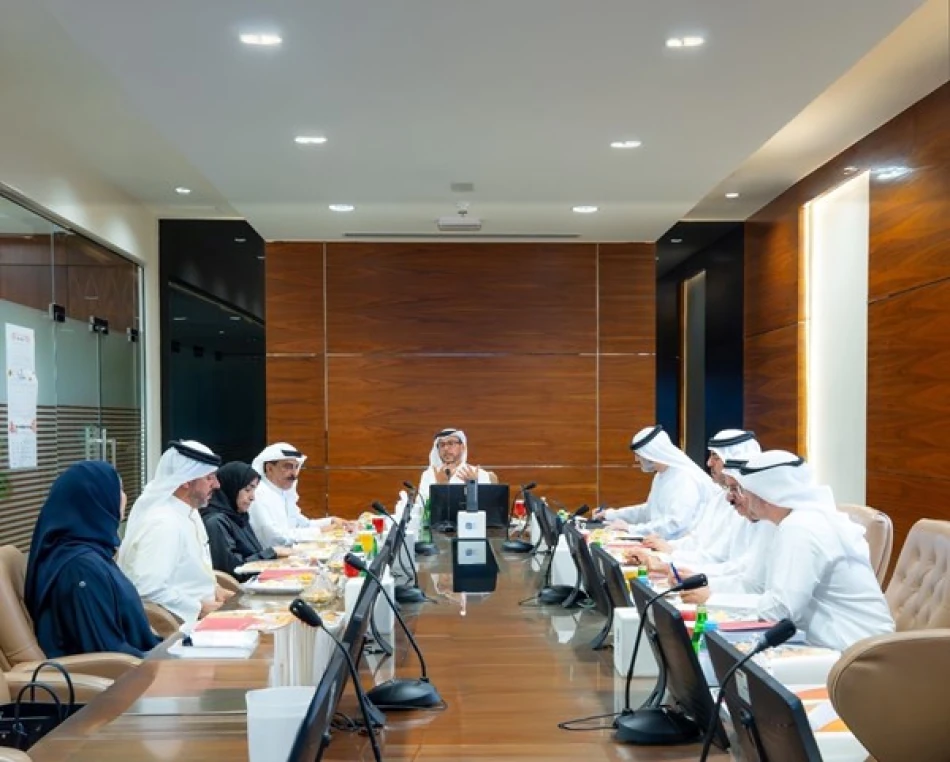
Ajman Chamber Unveils 2025 Project Milestones and Updates
Ajman Chamber Doubles Down on Anti-Bureaucracy Push as Export Values Surge 40%
The Ajman Chamber of Commerce is intensifying efforts to eliminate government red tape and boost local exports, riding a wave of momentum that has seen certificate of origin values jump over 40% in the first half of 2025. The move signals the emirate's determination to carve out a larger share of global trade flows while positioning itself as a business-friendly alternative within the UAE's competitive landscape.
Export Boom Drives Strategic Shift
During the chamber's third board meeting of 2025, Chairman Engineer Abdullah bin Mohammed Al Muwaiji emphasized the urgent need to capitalize on Ajman's export surge. The emirate has witnessed certificate of origin values exceed AED 21.6 billion over the past three years, with the recent 40% spike indicating accelerating international demand for Ajman-made products.
This growth trajectory puts Ajman in direct competition with neighboring emirates like Sharjah and Dubai for manufacturing and export leadership. Unlike its larger neighbors, Ajman appears to be betting on streamlined bureaucracy and targeted business support as its competitive edge.
Zero Bureaucracy: More Than Just Efficiency
The chamber's commitment to the national "Zero Government Bureaucracy" program reflects broader UAE efforts to maintain its position as a regional business hub amid growing competition from Saudi Arabia's Vision 2030 initiatives and Qatar's economic diversification plans.
For international investors, this bureaucratic streamlining could translate into faster business setup times, reduced compliance costs, and smoother export procedures. The timing is particularly strategic as global supply chains continue reshuffling post-pandemic, with companies seeking agile, regulation-light manufacturing bases.
Franchise Focus Signals Service Economy Ambitions
The board's discussion of franchise development cooperation with the UAE Franchise Association reveals Ajman's broader economic vision. Rather than relying solely on traditional manufacturing and trade, the emirate is positioning itself as a franchise hub – a move that could attract international brands seeking cost-effective expansion bases in the Gulf.
This strategy mirrors successful models in markets like Thailand and Malaysia, where smaller economic zones have leveraged franchise-friendly policies to punch above their weight in attracting international business.
Market Implications and Investment Outlook
The 40% surge in export documentation suggests Ajman's manufacturing sector is experiencing genuine growth, not just administrative improvements. For investors, this indicates potential opportunities in logistics, warehousing, and export-oriented manufacturing within the emirate.
The chamber's emphasis on "proactive services" and "direct investment attraction" also suggests upcoming policy announcements or incentive packages. Companies considering UAE expansion might find Ajman's combination of lower costs and streamlined processes increasingly attractive compared to more saturated markets in Dubai or Abu Dhabi.
With Ajman 2030 vision driving these initiatives, the emirate appears determined to transform from a manufacturing satellite into a competitive economic center in its own right. The success of this strategy will likely depend on maintaining momentum beyond the current export boom while avoiding the bureaucratic creep that often accompanies rapid growth.
Most Viewed News

 Layla Al Mansoori
Layla Al Mansoori






